As businesses increasingly rely on data-driven decision making, market research has become an essential component of any successful strategy. However, with the rise of DIY research tools, businesses face the question of whether to conduct research in-house or outsource it to a research firm. In this article, we will explore the advantages and disadvantages of each approach.
The Pros and Cons of DIY Tools
DIY research tools are cost-effective and give businesses full control. Often providing valuable research process experience for businesses. Conversely, the downside is many businesses lack the expertise needed for study design, data analysis, or insight development, leading to inaccurate or incomplete findings. Given the lack of research experience, DIY research can also be subject to bias, with businesses designing studies to simply confirm their hypotheses.
When to Outsource Your Research
Outsourcing research to a firm is often the best option for businesses that lack internal resources or expertise. A research partner can provide an outside perspective that can help eliminate bias and provide more objective results. Outsourcing can be particularly helpful if the project is complex or requires advanced techniques. In industries with regulatory requirements, such as pharmaceuticals or finance, engaging a firm with experience in regulatory compliance is critical.
The Benefits of Partnering with an External Firm
One of the primary benefits of outsourcing to a firm is expertise. Research firms have the experience and knowledge to design and execute research studies, as well as the expertise to analyze data. They can also provide more comprehensive insights, using a variety of techniques to gain a deeper understanding of the topic. Additionally, research partners can save organizations time, allowing them to focus on other essential business activities.
Making the Right Choice for Your Business
The decision to use DIY tools or outsource to a research partner depends on a variety of factors. Businesses should weigh the advantages and disadvantages carefully and choose the option that best meets their needs. If a research project is complex or requires regulatory compliance, outsourcing to a firm is often the best choice. If businesses have the expertise and resources to conduct research in-house, DIY research tools can be a cost-effective way to gain insights. By finding the right balance between DIY research tools and outsourcing to a research firm, businesses can make better decisions that drive growth and success.


